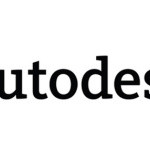- Industrie: Software
- Number of terms: 4366
- Number of blossaries: 1
- Company Profile:
The area in the Maya window where view panels appear. For example, when you start a new scene, the workspace shows the perspective view panel.
Industry:Software
The coordinate system for the entire scene. Its origin is at the center of the scene. The grid you see in view windows shows the world space axes. Also known as global space.
Industry:Software
In animation, the up direction. By default, this is the up direction of a scene’s world space, but can be set relative to an object’s local space. By default, the up vector of an object tries to stay as closely aligned as possible to the world up vector.
Industry:Software
In animation, a deformer that uses NURBS or polygonal objects to shape deformable objects.
The objects used by the wrap deformer to deform other objects are called wrap influence objects. Also known as surface deformer.
Industry:Software
In animation, a deformer that combines a cluster deformer with one or more wire deformers, useful for creating detailed wrinkling effects.
Industry:Software
A display technique that shows shaded surfaces as semi-transparent surfaces.
Industry:Software
A 3D coordinate system that lets you create characters and scenes with dimensionally accurate values.
In the XYZ coordinate system, the origin is the center with coordinates 0,0,0. All points are defined by three coordinates, one along the X- axis, one along the Y-axis, and one along the Z-axis. You can orient the XYZ coordinate system in either Y-up or Z-up.
Industry:Software
An orientation of the XYZ coordinate system where the X axis is the horizontal and Z is the depth of the scene.
This orientation is often used by animators (and games developers) who have evolved from the 2D world of vertical (Y) and horizontal (X) to include movement toward or away from the camera (Z).
Industry:Software
In general, the act of moving closer to or farther away from an object. In Maya, zooming a camera means changing the lens’s focal length. The camera does not move, but the scene in the camera’s view becomes larger or smaller. Also known as camera zoom.
Industry:Software
An orientation of the XYZ coordinate system that starts with a ground plane representing the X and Y directions, with Z representing the up direction.
This orientation is used by designers, whose main concern is the ground plane where their plans are placed.
Industry:Software
